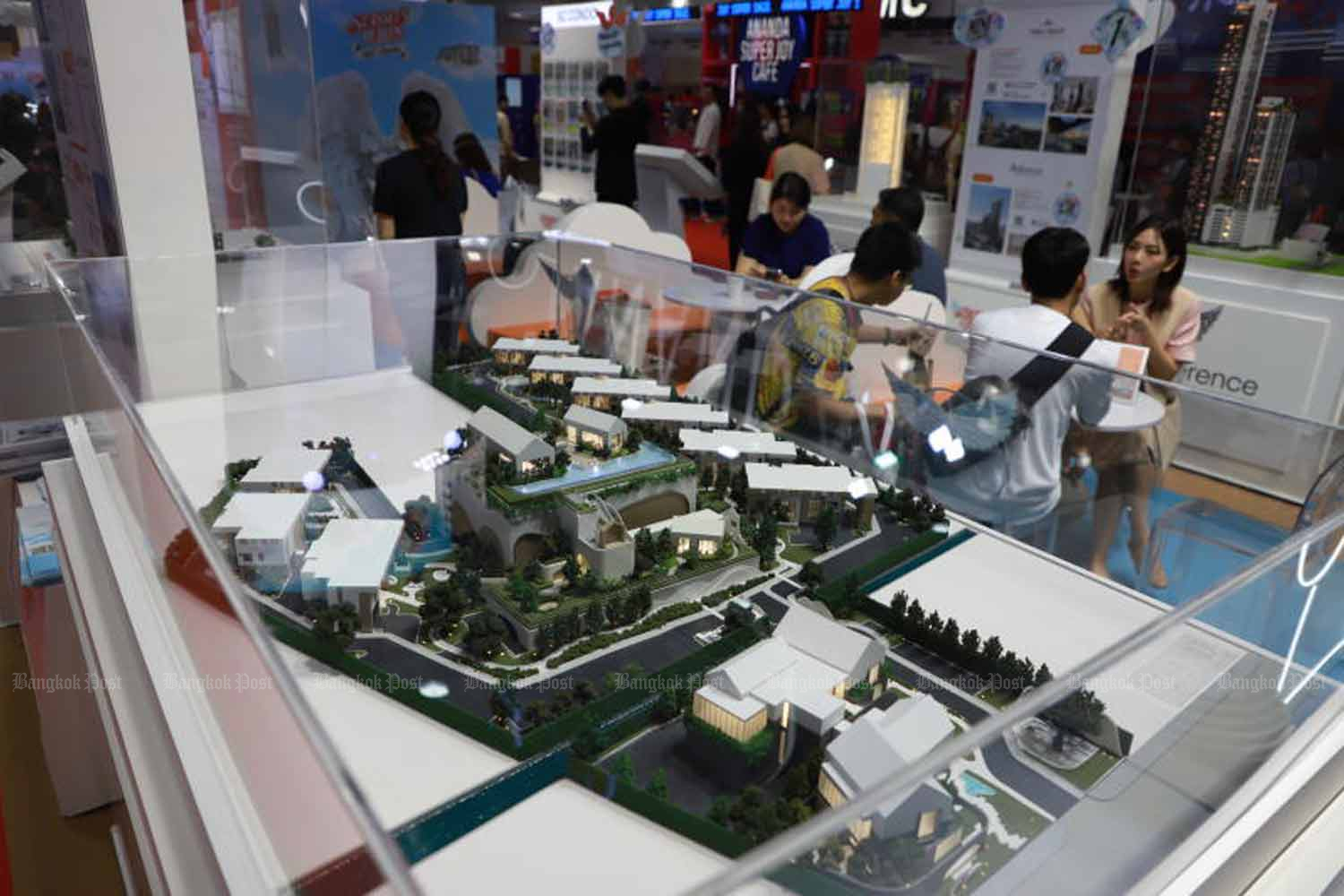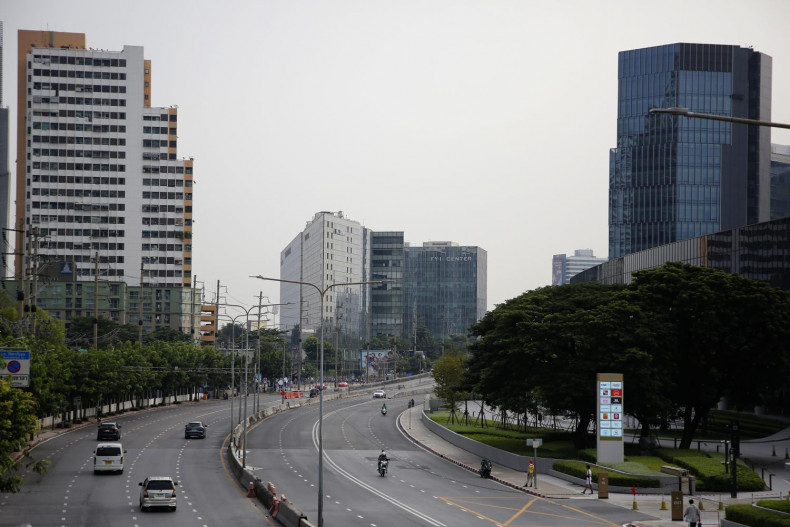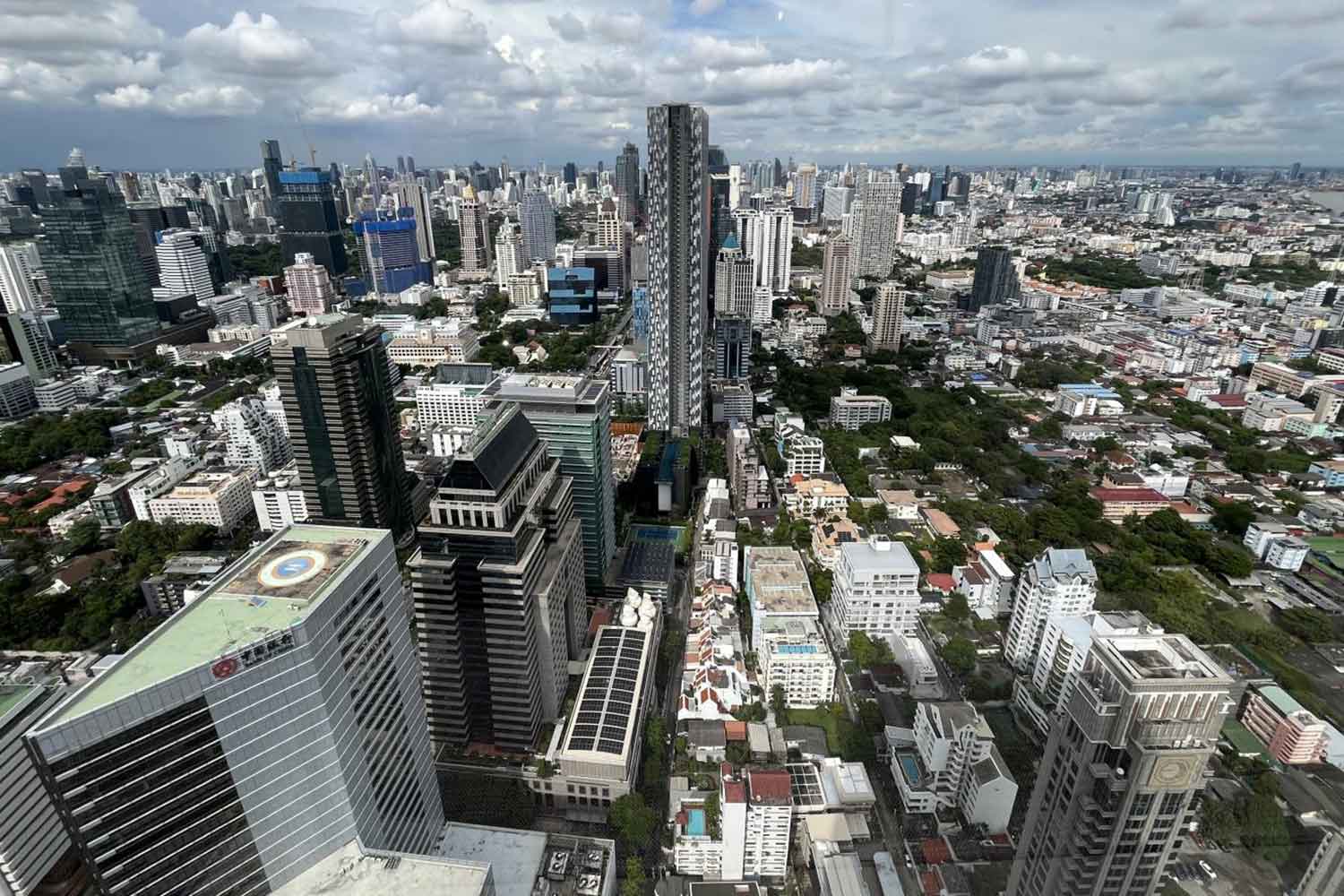Wealthy Chinese buyers have shifted their overseas property focus from the United States to Thailand, lifting Thailand from seventh to first place in global interest last year. Yet safety concerns have tempered enthusiasm, with buyers increasingly mindful of security and governance as they weigh luxury investments. The shift comes as Thailand secures top placement in interest from wealthy Chinese buyers for homes priced at the higher end, while a series of safety incidents and broader economic headwinds complicate the market’s rebound. This evolving pattern reflects a broader recalibration by Chinese investors who now prioritize lifestyle, education opportunities, and stability alongside potential financial returns.
Shifting Attractiveness: Chinese Buyers Move from the United States to Thailand
For several years, wealthy Chinese buyers seeking overseas property options distributed their attention across a range of global destinations. Data and market signals from 2023 into 2024 indicated a notable tilt away from the United States, particularly for high-priced properties, toward Southeast Asia and other regions offering a combination of favorable lifestyle attributes and investment potential. In 2024, Thailand overtook the United States to become the top destination for Chinese buyers considering homes priced at US$5 million or more. The United States experienced a retreat in this ultra-luxury segment, slipping from first to seventh place in these rankings, while Thailand surged from seventh place to the top position. The shift underscores a broader reallocation of demand away from emigration-focused motives toward lifestyle investments that also promise long-term stability and access to high-quality education, climate, and local amenities.
Industry analysts emphasize that these buyers are now prioritizing a balance of lifestyle and wealth preservation rather than mere relocation. Thailand’s emergence as the preferred destination aligns with a narrative of China’s affluent class seeking secure, sophisticated environments where family life can flourish, schools are accessible, and social and recreational advantages are readily available. The shift also reflects a growing perception that Thailand offers an enviable combination of climate, scenery, and urban convenience, alongside a more predictable investment climate in certain property segments. Market observers note that while the United States remains attractive for some buyers, its share in the ultra-high-end segment has diminished as Thailand became the favored hub for wealth preservation and family-oriented living.
Experts highlight that this change in sentiment is not solely about geography but about aligning personal and family priorities with the evolving global economy. Buyers are increasingly looking for properties that offer not just a home but a platform for education, social integration, and long-term lifestyle aspirations. Thailand’s appeal is anchored in attributes such as proximity to international schools, access to modern infrastructure, favorable time zones for family links back to Asia, and a climate conducive to year-round living. In this new frame, Thai developments that emphasize privacy, security, and resort-style amenities resonate strongly with Chinese buyers who seek both a prestigious address and a high standard of living for their families.
Industry voices also point to the role of property marketing and the importance of tailoring messaging to Chinese buyers’ preferences. Real estate professionals stressed that developers should spotlight features aligned with these priorities—school proximity, privacy, status signaling, and lifestyle benefits—when engaging with the Chinese market. The dialogue also includes guidance on presenting Thailand as a prudent wealth-management choice, where property can serve as a diversified asset in a stable, high-quality environment. As demand concentrates in specific price bands and locations, developers are increasingly calibrating product design, financing terms, and ownership structures to appeal to this highly selective segment.
The broader market context reinforces why Thailand has become a magnet for Chinese luxury buyers. The country’s image as a welcoming, culturally rich, and safe destination has long been part of its allure, but contemporary messaging now stresses sophisticated living, educational opportunities, and a lifestyle steeped in sunlit comfort. With Thailand positioned as a leading choice for wealth, family, and a better life, the market narrative emphasizes that this is not mere emigration but a strategic investment in ongoing well-being and opportunity. The emphasis on lifestyle upgrades, combined with tangible assets in a robust real estate market, has resonated with Chinese buyers who value long-term returns and the security of owning high-end property in a country that balances growth with social harmony.
Safety Concerns and Market Sentiment: How Incidents Shape Buyer Confidence
Despite the strong appeal of Thailand as a luxury destination, safety concerns have cast a shadow over the market. A high-profile kidnapping of a Chinese actor in Thailand earlier this year, widely discussed across Chinese social media and traditional outlets, acted as a turning point for many prospective buyers. The incident, together with revelations about scam centers targeting Chinese nationals, has amplified perceived risks associated with property investments in the country. These developments created a climate of heightened caution among Chinese buyers, with some delaying decisions as they reassess risk and safety parameters before committing to significant property purchases.
Analysts note that the sense of insecurity extends beyond isolated events to broader perceptions of safety and the reliability of legal and security frameworks. While authorities and the private sector moved quickly to respond, the psychological impact of such incidents can linger, affecting decisions about where to allocate substantial capital. The fear of crime, particularly for women and families considering property investments, has a disproportionate influence on the perception of Thailand as a safe investment destination. The market’s recovery trajectory may therefore depend not only on police and judicial actions but also on consistent, verifiable improvements in security infrastructure and public communication about safety initiatives.
From a market perspective, these safety concerns intersect with broader economic conditions in China and the global economy. A cooling Chinese economy and cautious overseas investment climate have compounded hesitation among buyers who previously propelled Thailand’s demand for luxury properties. The combination of domestic economic headwinds and the international security narrative creates a complex risk-reward calculus for investors who must weigh potential upside against exposure to social and political risks. In this environment, developers and agents face the dual challenge of sustaining interest among existing buyers while also attracting new investors who require clear, credible assurances about safety, governance, and long-term value preservation.
To address these concerns, market participants stress the need for rapid, tangible actions. Experts advocate for concrete measures that can reassure buyers and restore confidence. Proposed steps include implementing enhanced security systems across properties, establishing formal partnerships with government agencies to coordinate safety oversight, and conducting proactive outreach through Chinese channels to communicate ongoing safety improvements and services. These actions are framed as essential to reestablish trust and support the market’s momentum through 2025 and beyond. The strategic emphasis is on delivering measurable improvements that demonstrate Thailand’s commitment to safeguarding investor interests and sustaining a favorable environment for high-end property ownership.
The evolving sentiment underscores a broader principle in international real estate: perceived safety and governance are as critical as location and design. For Thai developers, rebuilding confidence means not only investing in physical security but also ensuring transparency in property transactions, reliability in property management, and a consistent, culturally aware communication strategy that resonates with Chinese buyers. The goal is to transform a moment of caution into a durable market advantage by showing that Thailand can offer both premium living and robust protection for capital.
Luxury Market Dynamics: Developer Strategies and Localized Demand
Amid shifting demand patterns, the luxury segment in Thailand has continued to attract interest from Chinese buyers, albeit with greater selectivity and a more cautious approach. In prior years, a sizable portion of luxury residential properties—encompassing both condominiums and low-rise houses—were absorbed by Chinese investors, including a mix of grey-market capital and affluent families who sent their children to study in Thailand. This historical trend underscored the role of education and long-term ties in shaping investment behavior, with Chinese buyers often viewing Thailand as a regional hub for family life and academic opportunity.
As market dynamics evolved, developers began adjusting product offerings to align with the refined preferences of Chinese buyers. A notable strategic shift is visible in the premium segment, where some developers are exploring innovative ownership structures to attract overseas buyers. Pruksa Real Estate, for example, has announced plans to offer leasehold ownership options for single-detached houses priced from 30 million baht to overseas buyers in 2025. This approach is designed to expand access to high-priced homes for non-residents, while accommodating the preferences of buyers who seek both control and flexibility in ownership arrangements. The company has projected sales targeting 1 billion baht from Chinese buyers in the high-priced segment this year, a target that would represent a doubling of the 500 million baht achieved in the previous year.
The focus on leasehold options and flexible ownership is part of a broader trend in which developers adapt to the needs of international buyers who require clarity on rights, asset control, and exit strategies. These offerings are pitched as solutions that can reduce perceived barriers to entry for overseas buyers and make high-end properties more attractive to an investor profile that prioritizes liquidity and risk management. The sales strategy is also tied to location-specific advantages, with particular attention to accessibility and economic linkages that appeal to Chinese families and investors.
In terms of location strategy, the Phatthanakan area has emerged as particularly appealing to wealthy Chinese buyers. The appeal of this district is linked to its proximity to Suvarnabhumi Airport, which provides convenient international connectivity, and its relatively easy access to the industrial zones in Bang Na. The combination of travel convenience and employment markets contributes to the overall desirability of this area for high-end residential investment, especially for buyers who intend to maintain international connections or who require easy access for frequent travel related to business or education.
Developers are also paying attention to the broader ecosystem that supports luxury living. This includes access to high-quality schools, cultural amenities, healthcare facilities, and secure, well-managed communities. The perception of privacy and status, along with lifestyle benefits, forms an important part of messaging to Chinese buyers. Market participants emphasize that successful engagement with this audience requires a holistic presentation of the living environment, including nearby educational institutions, secure communities, and the social signaling that accompanies ownership of premier properties. The combination of tangible asset attributes and intangible lifestyle advantages is central to sustaining interest in Thailand’s luxury real estate amid evolving global demand.
Market Data and Performance: Lessons from the Condo Market and High-End Sales
Across all price segments, Chinese buyers led Thailand’s condo market last year, reflecting the concentration of demand within a single nationality that dominated transfers. A total of 5,670 condo units worth 26.7 billion baht changed hands in 2023, representing the highest volume and value among all foreign buyers and underscoring the magnitude of Chinese participation in the sector. When measured against other foreign nationalities, buyers from Myanmar and Russia accounted for 1,388 units worth 7.0 billion baht and 1,079 units worth 3.66 billion baht, respectively, placing them in second and third positions by volume and value. The dominance of Chinese buyers in the condo market demonstrates the alignment between luxury residential demand and international investors seeking exposure to Thailand’s property markets.
However, the market experienced a downturn in 2024. The number and value of condo transfers to Chinese buyers declined relative to 2023, with figures showing fewer transactions and lower total value. Specifically, 2024 saw a reduction from 6,614 units worth 34.1 billion baht in 2023 to lower totals in the current year. This decline coincides with the broader economic challenges facing China and with heightened safety concerns that tempered buyers’ appetite for high-end purchases in Thailand. The data indicates that while Chinese buyers still maintained leadership in the condo sector, the momentum that characterized 2023 moderated in 2024 as buyers recalibrated their risk exposures and investment horizons.
Industry commentary points to a turning point in early 2025, marked by the high-profile kidnapping incident and the ensuing social media amplification in China. The event amplified safety concerns and contributed to a more cautious stance among Chinese purchasers, with particular salience for women and families evaluating property investments in Thailand. The immediate response from authorities and the private sector included swift public safety measures and communications intended to reassure potential buyers, but the long-term impact on perception remained a challenge for the market. In the wake of these events, the market faced the need to rebuild confidence and demonstrate that Thailand can deliver secure, stable, and high-quality investment environments for international buyers.
From a strategic perspective, the condo market’s rebound hinges on several interrelated factors. First, the perceived safety of living environments must be demonstrably improved through enhanced security protocols and visible investments in security infrastructure. Second, there must be ongoing, credible collaboration between developers and government agencies to ensure consistent enforcement of safety standards and efficient channels for addressing concerns raised by foreign buyers. Third, proactive engagement with Chinese agents and networks should be sustained to maintain a steady flow of information, reassurance, and opportunities to showcase Thailand’s advantages for luxury living. These components are essential to restore and strengthen confidence among Chinese buyers, enabling the market to regain the momentum observed in the prior year and to sustain growth in the longer term.
Beyond safety, market participants emphasize the importance of communicating the lifestyle and family-oriented benefits that Thailand offers to Chinese buyers. Schools, privacy, and lifestyle are frequently cited as critical decision influencers, along with the broader appeal of the Thai “Land of Smiles” branding. Agents and developers are encouraged to tailor offerings to emphasize proximity to educational institutions, premium amenities, privacy protections, and the overall quality of life that contemporary Thai developments provide. The goal is to position Thailand as not only a place to purchase a property but a strategic platform for a sophisticated, balanced life that accommodates business, education, family welfare, and leisure.
The Role of Education, Lifestyle, and Family-Centric Marketing
Education remains a central pillar in the decision-making process for Chinese buyers investing in Thailand. The appeal of international schools and high-quality educational facilities reinforces Thailand’s status as a credible hub for families seeking stability and opportunities for their children. Market participants note that families are drawn to neighborhoods and developments that offer easy access to reputable schools and a secure, nurturing environment. In addition, the broader lifestyle proposition—encompassing sun-drenched living, cultural experiences, and access to recreational and social amenities—plays a critical role in shaping demand dynamics. Properties that are marketed with clear links to educational access and family-friendly features tend to resonate more strongly with this buyer group.
In response to demand patterns, developers are increasingly highlighting the multifaceted lifestyle advantages that Thai properties provide. They emphasize security-conscious design, private communal spaces, ethical and transparent ownership structures, and access to premium services that align with international standards. The marketing narrative also places emphasis on the social status conferred by ownership of high-end Thai real estate, where buyers gain not only a residence but a prestigious address within a thriving regional hub. This approach aligns with the broader objective of presenting Thailand as a comprehensive lifestyle ecosystem—where education, health, leisure, and professional opportunities co-exist with scenic beauty and cultural richness.
The dynamic market environment also features a careful balancing act between price, demand, and risk management. Developers and brokers are navigating a spectrum of considerations, from exchange rate fluctuations and financing terms for overseas buyers to regulatory conditions affecting ownership rights and residency implications. As the market evolves, a more nuanced, data-driven approach is required to identify clusters of demand, optimize product-market fit, and deliver compelling investment propositions that address the preferences of wealthy Chinese buyers. The overall objective is to sustain robust demand in the high-end segment while maintaining rigorous risk controls and transparent communication channels that reassure investors about Thailand’s viability as a long-term home and wealth-management solution.
Strategy and Recovery: Building Confidence in a Post-Crisis Market
To reinvigorate confidence among Chinese buyers and reestablish Thailand as the premier destination for overseas luxury properties, developers and policymakers must implement a coordinated set of measures designed to address safety concerns, improve perceived value, and highlight the country’s advantages for families and investors alike. The immediate priorities include enhancing security systems within luxury developments, strengthening partnerships with government agencies to coordinate safety oversight, and conducting proactive outreach through Chinese agents and networks to communicate ongoing improvements and initiatives.
Developers are urged to be proactive in communicating the steps they are taking to mitigate safety risks and enhance security. Transparent disclosure about security infrastructure, access control measures, and on-site safety personnel can help reassure potential buyers that their families and assets are protected. In addition, establishing formal channels for collaboration with law enforcement and security agencies can demonstrate a credible commitment to safety and provide buyers with confidence that issues will be addressed promptly and effectively.
Partnerships with government agencies are viewed as essential to creating a sustainable, scalable safety framework that can be maintained over time. Such collaborations can help align real estate developers’ security provisions with national security policies and local enforcement practices, ensuring consistent standards across projects and regions. The objective is to create an ecosystem in which buyers can trust that safety is a shared responsibility, with clear responsibilities and accountability among developers, authorities, and service providers.
Proactive outreach through Chinese channels—such as agents, brokers, and professional networks—can help maintain open lines of communication, dispel misinformation, and provide timely updates about safety improvements, market conditions, and investment opportunities. This approach supports a more informed buying decision process, reducing uncertainty and reinforcing Thailand’s appeal as a safe, stable, and sophisticated investment environment. In practice, this means targeted marketing campaigns, multilingual customer support, and specialized services that address common questions and concerns for Chinese buyers.
The broader implication of these strategies is that Thailand’s luxury real estate market can recover its momentum by delivering credible, tangible improvements in safety, coupled with clear, compelling value propositions that align with the priorities of wealthy Chinese buyers. The path to recovery requires an integrated approach that combines physical security upgrades, institutional cooperation, and culturally attuned outreach, coupled with a commitment to long-term value creation for investors and residents alike. If successfully implemented, these measures can help restore confidence, sustain demand, and position Thailand as a resilient, high-quality destination for overseas property investment.
Conclusion
Thailand has emerged as the leading destination for wealthy Chinese buyers seeking overseas homes, driven by a combination of lifestyle appeal, education access, and a favorable market environment. Yet safety concerns—amplified by high-profile incidents and reports of scam centers—have tempered enthusiasm and challenged the market’s momentum. Developers and policymakers face a critical task: to accelerate concrete safety improvements, forge stronger public-private partnerships, and engage Chinese markets with credible, proactive outreach that emphasizes Thailand’s advantages while addressing buyer anxieties head-on. As markets recalibrate, the luxury property sector in Thailand will hinge on how convincingly stakeholders can demonstrate security, transparency, and value, ensuring that the country remains a compelling choice for wealth, family life, and a brighter future in the years ahead. The path forward rests on the ability of developers, authorities, and market participants to translate safety assurances into lasting confidence and sustained investment in Thailand’s high-end real estate.





